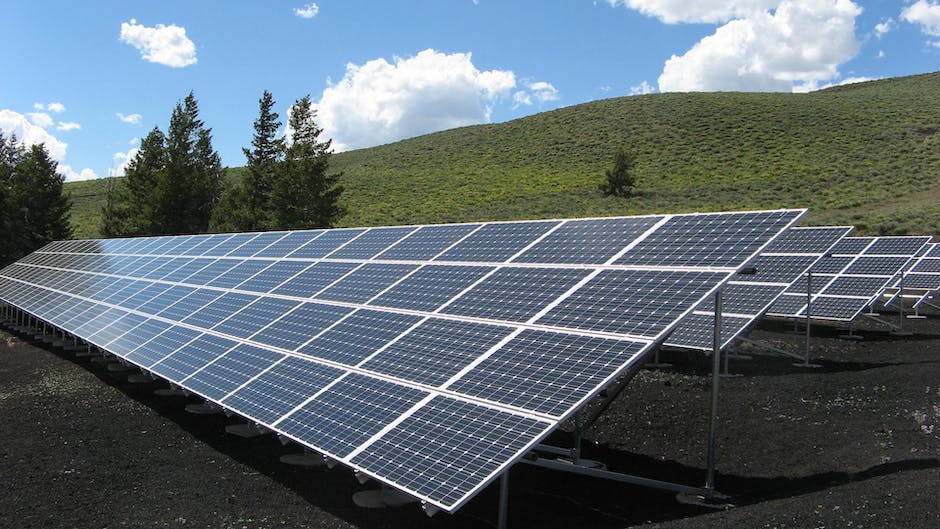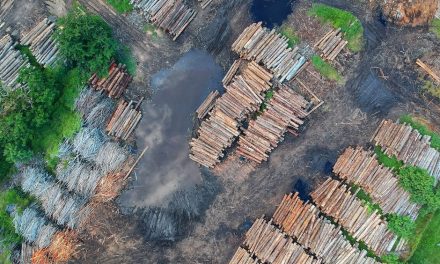Table of Contents
- Introduction
- The Role of Arab Leaders in Promoting Renewable Energy Initiatives
- Strategies and Policies Implemented by Arab Leaders to Drive Clean Energy Adoption
- Investments and Partnerships in Clean Energy Projects by Arab Leaders
- Challenges and Opportunities for Arab Leaders in Advancing the Clean Energy Agenda
- Q&A
- Conclusion
“Empowering the Arab world towards a sustainable future through visionary leadership in clean energy.”
Introduction
Arab leaders are playing a crucial role in shaping the future of clean energy. With their commitment to diversify their economies and reduce dependence on fossil fuels, Arab countries are increasingly investing in renewable energy sources. This introduction will explore the efforts and initiatives undertaken by Arab leaders to promote clean energy, highlighting their impact on the region’s sustainable development and global energy transition.
The Role of Arab Leaders in Promoting Renewable Energy Initiatives

The Role of Arab Leaders in Promoting Renewable Energy Initiatives
In recent years, there has been a growing global recognition of the need to transition to clean and sustainable sources of energy. Arab leaders have been at the forefront of this movement, taking significant steps to promote renewable energy initiatives and shape the future of clean energy in the region.
One of the key ways in which Arab leaders have been driving the adoption of renewable energy is through policy and regulatory frameworks. Governments in the Arab world have been implementing various measures to incentivize the development and deployment of renewable energy technologies. These include feed-in tariffs, tax incentives, and renewable energy targets. By creating a favorable environment for investment in clean energy, Arab leaders are encouraging the growth of the sector and paving the way for a sustainable future.
Furthermore, Arab leaders have been actively investing in renewable energy projects. Many countries in the region have abundant solar and wind resources, making them ideal locations for large-scale renewable energy installations. Arab leaders have recognized this potential and have been investing heavily in solar and wind power projects. For example, the United Arab Emirates has made significant investments in solar energy, including the development of the world’s largest single-site solar park. These investments not only contribute to the growth of the renewable energy sector but also create job opportunities and stimulate economic development.
In addition to policy and investment, Arab leaders have been promoting clean energy through international collaborations and partnerships. The Arab region has been actively participating in global initiatives aimed at addressing climate change and promoting sustainable development. For instance, the Arab Renewable Energy Initiative (AREI) was launched in 2015 to accelerate the deployment of renewable energy in the region. This initiative brings together Arab countries, international organizations, and financial institutions to support the development of renewable energy projects and share best practices. By collaborating with other nations and organizations, Arab leaders are able to leverage resources and expertise to drive the adoption of clean energy solutions.
Arab leaders have also been focusing on research and development in the renewable energy sector. Recognizing the importance of innovation in driving the transition to clean energy, governments in the region have been investing in research institutions and supporting research projects in areas such as solar and wind power. By fostering a culture of innovation and supporting research and development, Arab leaders are ensuring that the region remains at the forefront of clean energy technologies.
In conclusion, Arab leaders are playing a crucial role in shaping the future of clean energy. Through policy and regulatory frameworks, investments, international collaborations, and research and development, they are driving the adoption of renewable energy and paving the way for a sustainable future. The efforts of Arab leaders not only contribute to the global fight against climate change but also have significant economic and social benefits for the region. As the world continues to transition to clean energy, the leadership of Arab countries will be instrumental in ensuring a successful and sustainable energy future.
Strategies and Policies Implemented by Arab Leaders to Drive Clean Energy Adoption
Strategies and Policies Implemented by Arab Leaders to Drive Clean Energy Adoption
Clean energy has become a global priority as countries strive to reduce their carbon footprint and mitigate the effects of climate change. Arab leaders have recognized the importance of transitioning to clean energy sources and have implemented various strategies and policies to drive clean energy adoption in their respective countries. These initiatives not only aim to reduce greenhouse gas emissions but also to diversify their economies and create new job opportunities.
One of the key strategies employed by Arab leaders is the establishment of renewable energy targets. These targets serve as a roadmap for the development and deployment of clean energy technologies. For instance, the United Arab Emirates (UAE) has set a target to generate 50% of its energy from clean sources by 2050. This ambitious goal has spurred investments in solar and wind energy projects, making the UAE a global leader in renewable energy.
To achieve these targets, Arab leaders have also implemented supportive policies and regulatory frameworks. These policies provide incentives for clean energy investments and create a favorable business environment for renewable energy companies. For example, Saudi Arabia has introduced a renewable energy procurement program that offers long-term power purchase agreements to developers, ensuring a stable revenue stream for clean energy projects. Such policies not only attract domestic and international investors but also encourage the growth of a local clean energy industry.
Furthermore, Arab leaders have recognized the importance of research and development in driving clean energy innovation. They have established research centers and institutes dedicated to advancing renewable energy technologies. These institutions collaborate with international partners and conduct cutting-edge research to develop efficient and cost-effective clean energy solutions. The King Abdullah City for Atomic and Renewable Energy in Saudi Arabia and the Masdar Institute in the UAE are prime examples of such initiatives.
In addition to setting targets and implementing supportive policies, Arab leaders have also prioritized capacity building and knowledge transfer. They have invested in educational programs and training initiatives to develop a skilled workforce capable of driving the clean energy transition. By equipping their citizens with the necessary skills and knowledge, Arab leaders are not only creating employment opportunities but also ensuring the long-term sustainability of their clean energy sectors.
Collaboration and partnerships have also played a crucial role in shaping the future of clean energy in the Arab world. Arab leaders have actively engaged with international organizations, such as the International Renewable Energy Agency (IRENA), to share best practices and learn from global experiences. They have also formed regional alliances, such as the Arab Renewable Energy Commission, to promote cooperation and exchange expertise among Arab countries. These collaborative efforts have accelerated the deployment of clean energy technologies and facilitated the transfer of knowledge and expertise.
In conclusion, Arab leaders have taken significant steps to shape the future of clean energy in their countries. Through the establishment of renewable energy targets, supportive policies, research and development initiatives, capacity building programs, and collaboration with international partners, they are driving the adoption of clean energy sources. These efforts not only contribute to global climate goals but also create new economic opportunities and pave the way for a sustainable future. As the world continues to grapple with the challenges of climate change, the strategies and policies implemented by Arab leaders serve as a model for other nations seeking to transition to a clean energy future.
Investments and Partnerships in Clean Energy Projects by Arab Leaders
Investments and Partnerships in Clean Energy Projects by Arab Leaders
The global shift towards clean energy has gained significant momentum in recent years, with countries around the world recognizing the urgent need to transition away from fossil fuels and towards more sustainable sources of energy. Arab leaders, in particular, have been at the forefront of this movement, investing heavily in clean energy projects and forging partnerships to shape the future of renewable energy.
One of the key drivers behind Arab leaders’ commitment to clean energy is the region’s abundant natural resources. With vast deserts and ample sunlight, solar energy has emerged as a particularly promising avenue for Arab countries to harness their potential. Recognizing this, Arab leaders have made substantial investments in solar power projects, aiming to not only reduce their dependence on fossil fuels but also to become major exporters of clean energy.
The United Arab Emirates (UAE) is a prime example of an Arab country that has made significant strides in clean energy investments. The UAE’s leadership has set ambitious targets to increase the share of clean energy in its total energy mix, with a particular focus on solar power. The country’s flagship project, the Mohammed bin Rashid Al Maktoum Solar Park, is one of the largest solar parks in the world and is expected to generate 5,000 megawatts of clean energy by 2030.
In addition to domestic investments, Arab leaders have also been actively seeking partnerships with international players in the clean energy sector. These partnerships not only bring in expertise and technology but also help foster collaboration and knowledge-sharing. For instance, Saudi Arabia, the largest economy in the Arab world, has formed partnerships with global energy giants such as SoftBank and EDF Renewables to develop large-scale solar projects. These collaborations not only contribute to the growth of the clean energy sector but also enhance the reputation of Arab countries as leaders in renewable energy.
Furthermore, Arab leaders have recognized the importance of diversifying their energy mix beyond solar power. Wind energy, in particular, has gained traction in the region, with countries like Egypt and Morocco investing in wind farms to harness their strong winds. Egypt, for example, has set a target to generate 20% of its electricity from renewable sources by 2022, with wind energy playing a significant role in achieving this goal.
Another area where Arab leaders have been actively investing is in research and development (R&D) of clean energy technologies. Recognizing the need for innovation to drive the clean energy transition, countries like Qatar and the UAE have established research centers and institutes dedicated to advancing renewable energy technologies. These investments in R&D not only contribute to the development of cutting-edge clean energy solutions but also position Arab countries as hubs for innovation in the sector.
In conclusion, Arab leaders are playing a crucial role in shaping the future of clean energy through their investments and partnerships in renewable energy projects. With their abundant natural resources, Arab countries have recognized the potential of solar and wind energy and have made significant investments in these sectors. Moreover, partnerships with international players have helped accelerate the growth of the clean energy sector and foster collaboration. By investing in R&D, Arab leaders are also driving innovation and positioning their countries as leaders in the development of clean energy technologies. As the world continues to prioritize the transition to clean energy, Arab leaders are poised to make a lasting impact on the future of sustainable energy.
Challenges and Opportunities for Arab Leaders in Advancing the Clean Energy Agenda
Challenges and Opportunities for Arab Leaders in Advancing the Clean Energy Agenda
The Arab world is at a crossroads when it comes to clean energy. With the increasing global focus on sustainability and the urgent need to combat climate change, Arab leaders are faced with both challenges and opportunities in shaping the future of clean energy in the region.
One of the main challenges for Arab leaders is the heavy reliance on fossil fuels. The Arab world is known for its vast reserves of oil and natural gas, which have been the backbone of the region’s economy for decades. However, this dependence on fossil fuels not only contributes to greenhouse gas emissions but also leaves the region vulnerable to fluctuations in global oil prices.
To address this challenge, Arab leaders are increasingly recognizing the need to diversify their energy sources. Investing in renewable energy, such as solar and wind power, presents a significant opportunity for the region. The Arab world has abundant sunshine and strong winds, making it an ideal location for harnessing clean energy. By embracing renewable energy, Arab leaders can reduce their carbon footprint, create new job opportunities, and enhance energy security.
Another challenge that Arab leaders face is the lack of infrastructure for clean energy. While some countries in the region have made significant progress in developing renewable energy projects, there is still a need for substantial investment in infrastructure. This includes building solar and wind farms, establishing transmission networks, and upgrading existing power grids to accommodate clean energy sources.
To overcome this challenge, Arab leaders can leverage their financial resources and partnerships with international organizations. By attracting foreign direct investment and collaborating with global clean energy leaders, Arab countries can accelerate the development of clean energy infrastructure. This not only benefits the region but also contributes to the global transition towards a sustainable future.
Furthermore, Arab leaders must also address the issue of energy subsidies. Many countries in the region heavily subsidize fossil fuels, making them artificially cheap and discouraging the adoption of clean energy alternatives. These subsidies not only strain government budgets but also hinder the growth of the clean energy sector.
To tackle this challenge, Arab leaders can gradually phase out fossil fuel subsidies and redirect those funds towards supporting clean energy initiatives. By implementing targeted policies and incentives, such as feed-in tariffs and tax breaks, Arab countries can encourage the adoption of renewable energy technologies and create a level playing field for clean energy investments.
In conclusion, Arab leaders have a crucial role to play in shaping the future of clean energy in the region. While they face challenges such as heavy reliance on fossil fuels, lack of infrastructure, and energy subsidies, there are also significant opportunities for them to embrace renewable energy and drive sustainable development. By diversifying their energy sources, investing in infrastructure, and reforming energy subsidies, Arab leaders can lead the way towards a cleaner and more sustainable future for the Arab world.
Q&A
1. How are Arab leaders shaping the future of clean energy?
Arab leaders are investing heavily in renewable energy projects, setting ambitious targets for clean energy production, and implementing policies to promote sustainable development.
2. What initiatives are Arab leaders taking to promote clean energy?
Arab leaders are launching large-scale renewable energy projects, such as solar and wind farms, investing in research and development of clean technologies, and promoting energy efficiency measures.
3. Are Arab leaders setting any specific targets for clean energy production?
Yes, many Arab countries have set specific targets for clean energy production. For example, Saudi Arabia aims to generate 50% of its energy from renewables by 2030, while the UAE aims to achieve 50% clean energy by 2050.
4. How are Arab leaders promoting sustainable development through clean energy?
Arab leaders are implementing policies to attract investments in clean energy, creating favorable regulatory frameworks, and encouraging public-private partnerships to drive sustainable development in the energy sector.
Conclusion
In conclusion, Arab leaders are playing a significant role in shaping the future of clean energy. They have recognized the importance of transitioning to sustainable energy sources and have implemented various initiatives and policies to promote clean energy development. Through investments in renewable energy projects, research and development, and international collaborations, Arab leaders are driving the growth of clean energy in the region. Their efforts are not only contributing to reducing carbon emissions and mitigating climate change but also fostering economic diversification and creating new job opportunities. With continued commitment and support from Arab leaders, the future of clean energy in the Arab world looks promising.




Recent Comments